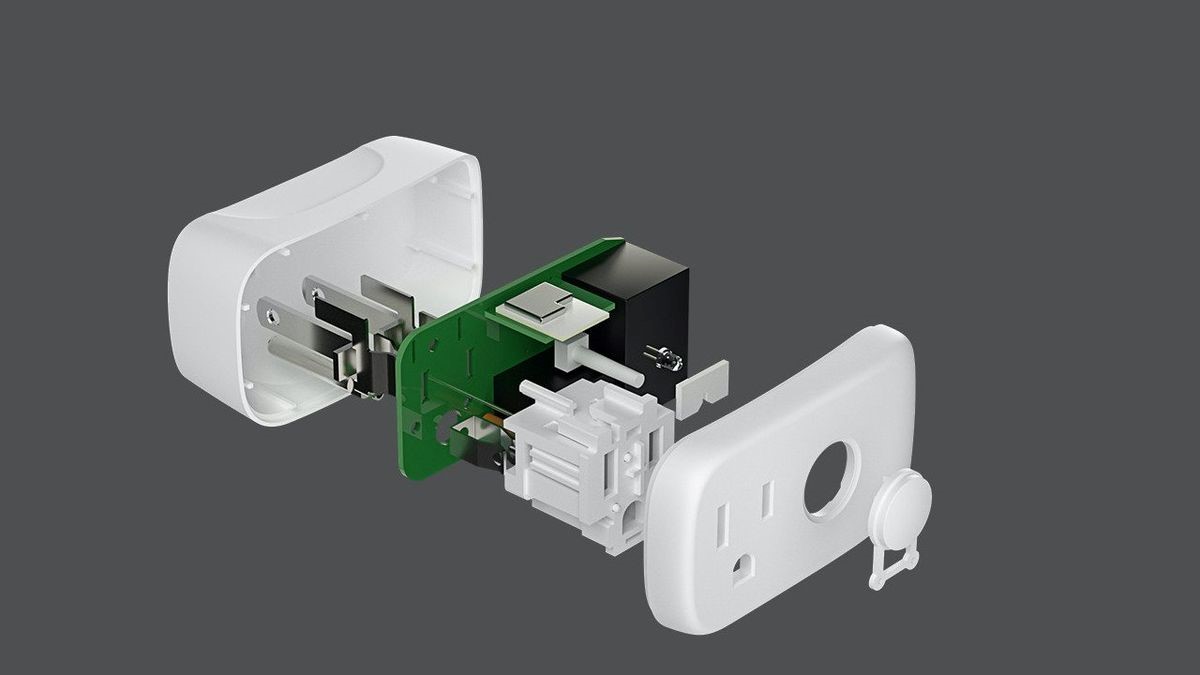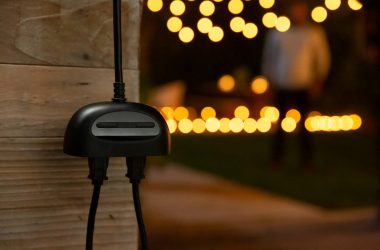Key Takeaways:
- Some smart plugs are compatible with 5GHz Wi-Fi, but they are less common than 2.4GHz models.
- The Leviton DW15P-1BW is an example of a smart plug that supports 5GHz Wi-Fi.
- 5GHz smart plugs offer faster data speeds, reduced interference, and improved performance in congested areas.
- 2.4GHz offers wider coverage and compatibility but may face congestion
- 5GHz provides faster speeds and stability with a limited range and compatibility.
Many tech-savvy homeowners are now looking forward to the smart plugs that work on 5GHz. These innovative devices capitalize on the superior speed and reduced interference of 5GHz networks, offering a more streamlined, and efficient smart home experience.
This article delves into the advantages of 5GHz smart plugs, and explores their compatibility with modern home networks, and provides practical advice to help you navigate this evolving market and enhance your home’s connectivity.
Is There a 5GHz Smart Plug?
If you have a 5GHz router and are looking for a smart plug that specifically operates on this frequency, you have limited options. The Leviton DW15P-1BW emerges as a notable choice, specifically engineered to operate on the 5GHz frequency.
This makes it a suitable option for those wanting to integrate smart plugs into a 5GHz network, ensuring compatibility and taking advantage of the higher speed that this frequency can offer.
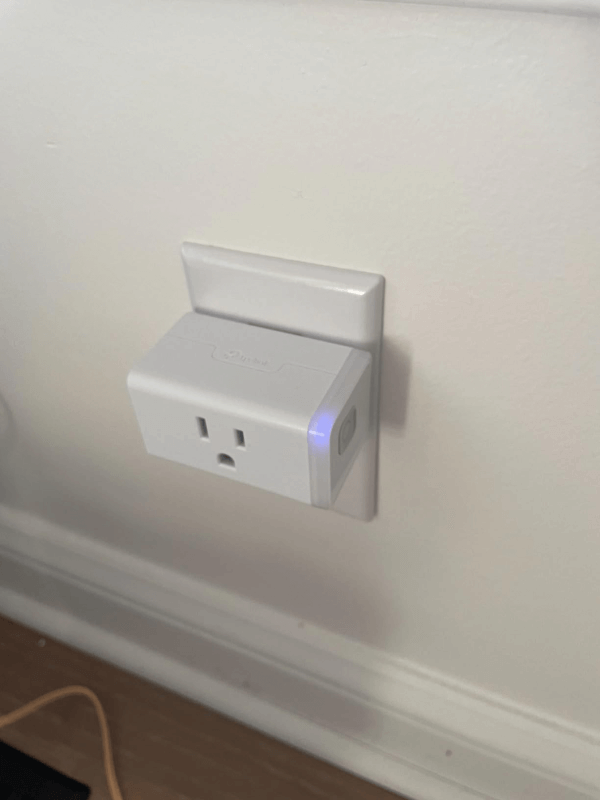
What Are 5GHz Smart Plugs?
5GHz smart plugs are devices designed to operate on the 5GHz Wi-Fi band. They allow you to control and automate household devices with a more stable and interference-free connection.
- Enhanced Performance: 5GHz smart plugs reduce signal congestion and offer faster speeds, ideal for environments with many connected devices.
- Dual-Band Advantage: These plugs can integrate with dual-band routers, making them versatile and future-proof.
- Considerations: While beneficial, their availability is limited, and compatibility with your home network must be checked carefully.

Best Smart Plugs That Work With 5GHz WiFi
For a seamless and fast smart home experience, choosing smart plugs that work with 5GHz WiFi is crucial. Among the top contenders, the Eightree Smart Plug offers remote control, the Leviton DW15P-1BW stands out for its user-friendly interface, the Sengled G2 is renowned for its voice control capabilities, and the Broadlink SP4D-US is known for being cost-effective.
Following are the top choices for the 5G smart plugs.
1. Eightree Smart Plug 5GHz
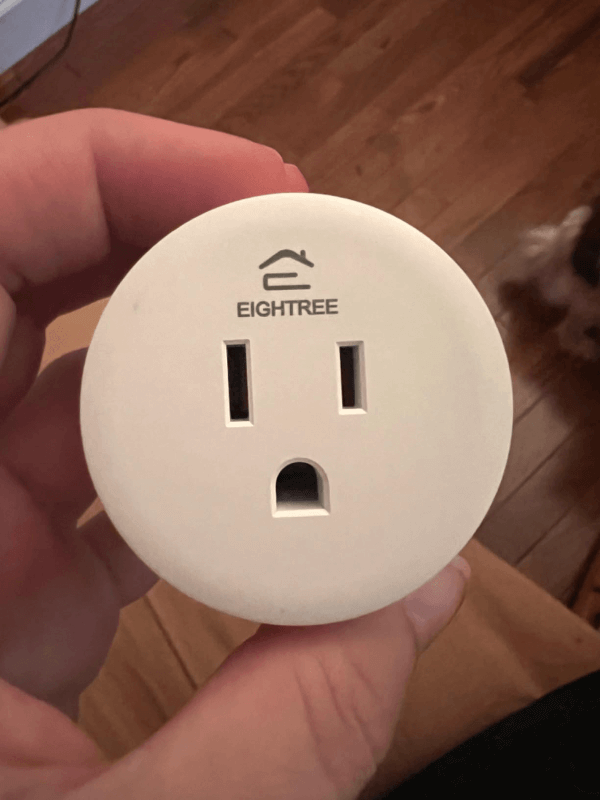
The Eightree Smart Plug 5GHz transformed my smart home experience. It’s rare to find devices that work seamlessly with 5GHz WiFi, and this plug felt like a game-changer with its quick connection and smooth operation.
What I love most is how fast and reliable it is. Setup was a breeze, and it works perfectly with Alexa and Google, letting me control devices with just my voice. There’s no lag—everything responds instantly.
However, it’s a bit bulky, which could be an issue if outlets are close together, and it’s pricier than 2.4GHz-only options. Despite these minor drawbacks, its fast, reliable connection makes it a solid choice for anyone using 5GHz WiFi.
Pros and Cons
- Works great with 5GHz WiFi
- Easy to set up and use with Alexa or Google
- Fast and reliable connection
- Bigger size might not fit everywhere
- Costs more than other plugs
2. Leviton D215P-1BW
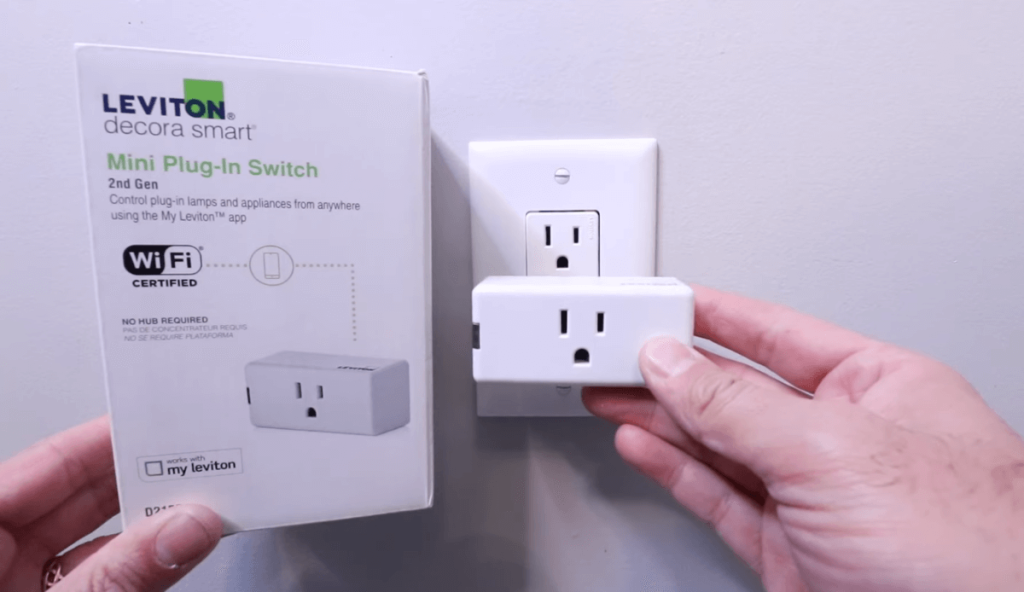
Next, I tried the Leviton D215P-1BW smart plug, and it’s a standout for 5GHz WiFi users. Unlike many plugs, it handles 5GHz seamlessly, ensuring smooth, fast connections and compatibility with nearly all smart home systems.
A great bonus is its energy monitoring feature, which helps track usage and cut down on power costs. Since using it, I’ve noticed my electric bills drop, making it a practical and money-saving addition.
Overall, the Leviton D215P-1BW is reliable and energy-efficient, making it worth the investment, especially if you’re comfortable with a little setup effort.
Pros and Cons
- Works great with 5GHz WiFi
- Fits with lots of smart home systems
- Helps you save energy and money
- Pricey
- Setup might be hard if you’re not tech-savvy
3. Sengled G2 Smart Plug
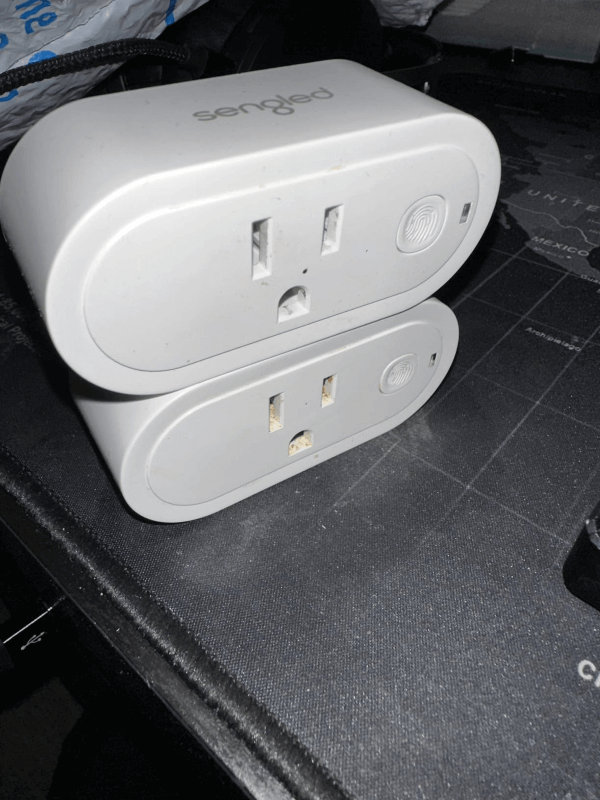
My journey with smart home tech has been all about finding gadgets that work smoothly with 5GHz WiFi. The Sengled G2 is a standout because it connects strongly and keeps that connection solid, even when the WiFi network is busy.
I was super impressed with how easy it is to use and set up. You don’t need an extra hub, which is great for those of us who don’t want more gadgets lying around. Just plug it in, and you’re all set to control your devices with your phone or voice commands using Alexa or Google Assistant. It’s made handling my lights and other devices a breeze.
If you’re getting into smart homes or adding to yours, the Sengled G2 Smart Plug is a strong pick, especially if you want 5GHz WiFi. It’s reliable, simple to use, and works well with the big smart home systems.
Pros and Cons
- Works on 5GHz WiFi
- No extra hub needed
- Simple to install and use
- Works with Alexa and Google Assistant
- Might be too big for some outlet spaces
4. Broadlink Smart Mini Plug

The Broadlink Smart Mini Plug is a great pick for upgrading your smart home, especially if you’re looking for a reliable 5GHz WiFi option.
It’s easy to set up and works seamlessly with Alexa or Google Assistant, making voice control a breeze. Its compact size is a big plus, as it doesn’t block other outlets. The energy monitoring feature is another win, helping track usage and save on electricity costs.
To sum it up, the Broadlink Smart Mini Plug is a top choice for those wanting smart plugs that work with 5GHz WiFi. Its solid performance, along with the perks of energy monitoring and voice control, make it a smart addition to any home.
Pros and Cons
- Good with 5GHz WiFi
- You can control it with voice commands
- Doesn’t take up too much space
- Helps you watch your energy use
- Setting it up can be a bit tricky
- The app’s look could be better
| Smart Plug | Features | Pros | Cons |
|---|---|---|---|
| Eightree Smart Plug 5GHz | Works with 5GHz WiFi, Alexa/Google compatibility | Fast 5GHz WiFi connection, easy setup, voice control | Bulky, more expensive |
| Leviton D215P-1BW | 5GHz WiFi compatibility, energy monitoring | Fits many smart systems, saves energy | Pricey, setup may be challenging |
| Sengled G2 Smart Plug | No hub needed, works with 5GHz WiFi | Simple setup, no hub, works with major assistants | Large size may limit outlet use |
| Broadlink Smart Mini Plug | Energy monitoring, compact size, works with 5GHz WiFi | Compact, energy monitoring, voice commands | Large size may limit outlet use |
Why Use a 5GHz Smart Plug?
5GHz smart plugs offer faster data speeds, reduced interference, and improved performance in congested areas, making them ideal for modern smart homes. They provide local control, voice and remote access, energy monitoring, and seamless compatibility with dual-band routers.
Find more about these benefits below:
1. 🚀 Faster Data Transfer Speeds
5GHz smart plugs operate on a higher frequency band, resulting in faster data transmission rates. This is particularly beneficial for tasks requiring higher bandwidth, making your smart home more responsive and efficient.
2. 📶 Reduced Interference & Improved Performance
Operating on the 5GHz frequency means these smart plugs are less likely to encounter interference from other household devices, which commonly use the 2.4GHz band. This results in a more stable and reliable connection for your smart devices.
3. 📊 Local Control and Energy Monitoring
Some 5GHz smart plugs, like the Leviton DW15-P, store schedules and settings locally, ensuring that your automated tasks run on time even if your Wi-Fi or internet connection is down. Moreover, certain models, like the BroadLink Smart Plug, offer energy monitoring features, enabling you to track the energy consumption of your connected devices and optimize usage to save on electricity bills.
4. 🎙️ Voice and Remote Control
Many 5GHz smart plugs are compatible with voice assistants like Amazon Alexa and Google Assistant, allowing for easy voice control. Additionally, they can be controlled remotely through apps, giving you the ability to manage your devices from anywhere.
5. 📡 Compatibility with Dual-Band Routers
Even if a smart plug is designed primarily for 2.4GHz, it can still operate effectively with dual-band routers that support both 2.4GHz and 5GHz frequencies, ensuring compatibility and flexibility in your smart home network.
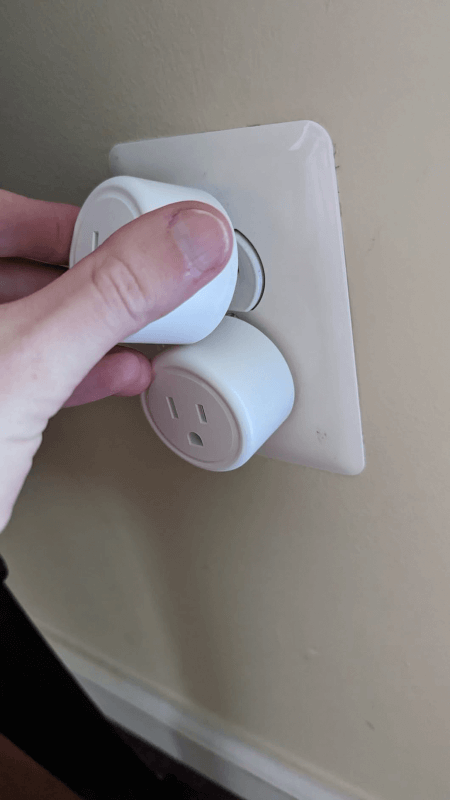
2.4GHz Vs. 5GHz: Which Is Better for Smart Plugs?
In choosing between 2.4GHz and 5GHz for smart plugs, 2.4GHz offers wider coverage and compatibility but is prone to congestion, while 5GHz provides faster speeds and stability with a limited range and compatibility, tailoring to specific home layouts and device needs.
Below are the detailed differences between both:
📡 2.4GHz Frequency
The 2.4GHz frequency, common in most smart plugs, offers wider coverage and better penetration through walls, making it ideal for larger homes and distant devices. Its broad compatibility ensures it works with most smart home gadgets.
However, its popularity also becomes its drawback. Being widely used by numerous devices, from smart home gadgets to microwaves, the 2.4GHz band is more susceptible to congestion and interference, which can sometimes lead to reduced performance and reliability.
Pros and Cons
- Greater range and better at penetrating solid objects.
- High compatibility with most smart home devices.
- More prone to interference from other devices.
- Potentially congested network leading to slower speeds.
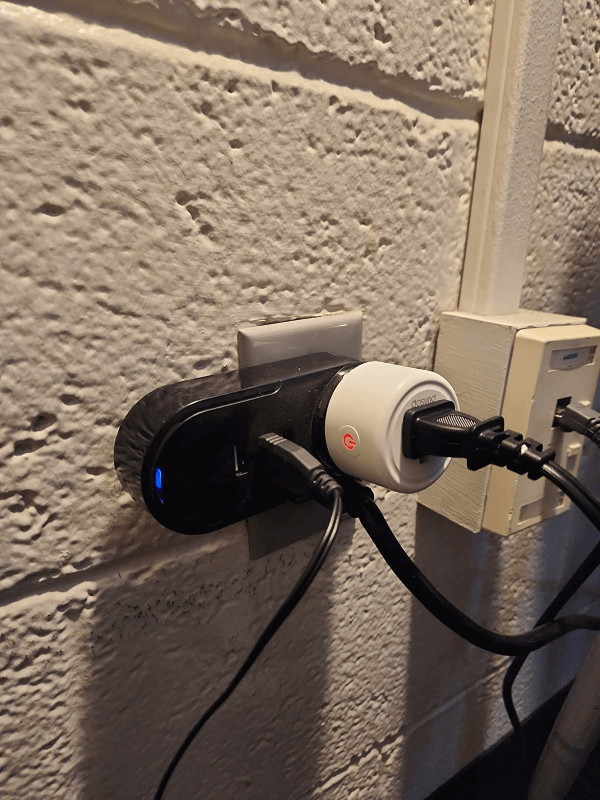
⚡ 5GHz Frequency
The 5GHz frequency offers faster data transmission and minimal latency, making it ideal for high-speed tasks and devices. It’s less congested, providing a more stable and reliable connection for smart plugs.
However, its shorter wavelength means reduced range and less ability to penetrate walls, making it better suited for smaller spaces or plugs near the router. Additionally, not all smart plugs support 5GHz, so options may be more limited compared to 2.4GHz.
Pros and Cons
- Faster data transmission rates and lower latency.
- Less congested, leading to a more stable and reliable connection.
- Shorter range and less effective at penetrating solid objects.
- Limited compatibility with smart plugs and other smart home devices.
The choice between 2.4GHz and 5GHz for smart plugs largely depends on the specific needs and layout of your home, as well as the nature of the devices you wish to connect. If range and compatibility are your primary concerns, 2.4GHz is the way to go. However, if you prioritize speed and a stable connection in a smaller space, 5GHz might be the better choice.
5GHz Smart Plugs-Making Connections Faster & Efficient
After my in-depth analysis of 5GHz smart plugs, it’s clear that they are an innovative solution for enhancing your smart home’s efficiency and connectivity. While the market offers limited options, devices like the Leviton DW15P-1BW demonstrate the potential of 5GHz technology in providing faster, more reliable connections with reduced interference.
- 5GHz smart plugs, though not as common as 2.4GHz versions, offer notable advantages in speed and network clarity.
- Compatibility with dual-band routers ensures these devices can integrate smoothly into various smart home setups.
- When selecting a 5GHz smart plug, it’s crucial to consider factors like device compatibility, network requirements, and specific home automation needs.






